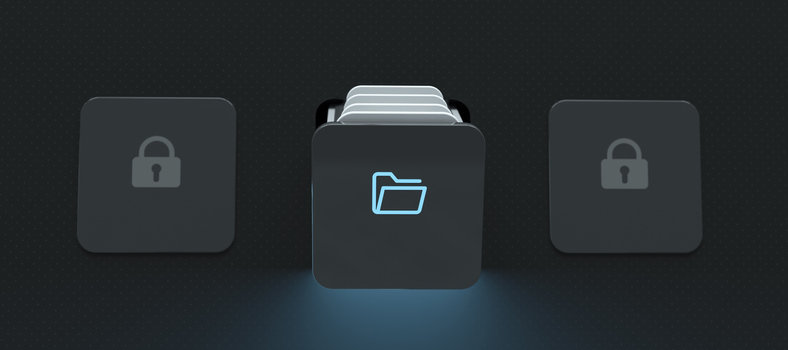In today’s digital age, email communication is necessary to run businesses of all sizes. An estimated 60% of business-critical information, from internal communications to client correspondence, is stored in email. Archiving emails can be crucial for business success by protecting critical information from data breaches, ensuring legal compliance, and boosting overall productivity.
Key Takeaways
- Archiving emails can help your team access information quickly and enhance the overall productivity of your organization
- Email archiving can protect critical business communications from data breaches and help businesses maintain legal compliance
- Archived emails can allow employees to easily access past communications and support future business decisions
- Email archiving can reduce the storage burden on email servers and improve its performance by offloading past emails to a separate storage solution
- Email archiving can help businesses restore operations quickly in the aftermath of an unexpected disaster
What is Email Archiving?
Email archiving is the process of preserving emails outside of the mail server for future retrieval. Unlike simple email backups, which creates a backup image of the entire email system, email archiving systematically stores emails in a way that allows for easy retrieval. Email archiving solutions can include a variety of features, such as encryption, access controls, and automated compliance checks, to store past email communications securely and efficiently.

The Importance of Archiving Emails
Email communication is a cornerstone for all types of businesses. It’s the channel through which client correspondence occurs, internal communications are shared company-wide, and valuable data is transferred. Safely storing important email communications is essential for businesses’ long-term success, making secure email archiving a smart move for all businesses. Here are five reasons why archiving emails is important to your overall business operations.
Archiving Emails Improves Organization and Efficiency
Archiving emails can improve your organization’s productivity by allowing employees to categorize and store important email communications in a systematic manner, making it easier to locate them when needed. The sheer volume of emails a company receives on a daily basis can be overwhelming. An employee’s disorganized inbox can lead to lost messages, missed deadlines, and decreased productivity. Archiving important communication helps ensure that critical information is stored safely and can be easily accessed when needed.
An archive can help employees create a structured system that allows for efficient data retrieval and prevents critical information from accidental deletion. Email archiving can also help in managing employee turnover. When a team member leaves the company, the emails that are archived remain accessible. This can help new employees get up to speed quickly by reviewing past communications.
Archiving Emails Ensures Legal Compliance and Data Security
Legal compliance is a significant concern for many businesses. Regulatory bodies often require companies to retain certain communications for a specified period of time. While this time period may range depending on the industry you’re in, it is important to comply with regulations to avoid hefty fines or legal repercussions. By archiving emails, you can store these communications in a secure environment for the specified period of time and protect sensitive information from data breaches.
Many email archiving solutions provide automated compliance features, as well as advanced security features to safeguard archived emails. Data breaches are a significant concern for any business that uses email and other online tools. Archiving important emails ensures that all important communications can be easily accessed for audits, legal inquiries, or other reasons only by authorized personnel. In cases where businesses may need to provide historical data or communication for legal matters, having an archive allows for easy access to these communications.

Archiving Emails Allows for Easy Retrieval of Past Communications
Past email communications can be used to resolve disputes, track project progress, or reference previous decisions. Being able to quickly retrieve past communications is invaluable and can be used to streamline many processes.
Archived emails can be used to review past interactions with customers, which can inform future protocols and marketing strategies based on historical data. Email archives can also support internal investigations. When an issue arises, having a comprehensive archive of past communications allows businesses to quickly gather all relevant communications to put together a clear and accurate picture of the situation. This can ensure leadership can make informed business decisions and resolve disputes.
Archiving Emails Reduces Storage Costs and Improves Your Server’s Performance
Email servers can become overwhelmed by the accumulation of thousands of emails, which can impact its performance and lead to increased maintenance costs. Archiving emails can reduce the storage burden on your servers by storing these older emails in a separate, more efficient storage system. This can help extend the lifespan of email servers and ensure that critical communications are safely stored elsewhere in case of a system failure.
Archiving Emails Supports Business Continuity
Business continuity is essential for maintaining operations during and after an unexpected disaster. Archived emails can add an additional layer of protection by ensuring that important emails are safely stored and can be accessed even if primary systems are compromised.
In the event of a data loss or system failure, archived emails can be quickly restored, helping businesses recover quickly and reducing the impact of unexpected disasters on their operations. This can boost client trust as well by helping businesses resume normal operations with minimal disruption.
Archiving emails can do more than free up space in your inbox. By prioritizing email archiving, your business can protect important communications, streamline your workflows, and ensure legal compliance. Learn more about what a robust email archiving solution can do to support your business’s long-term success by reviewing Intermedia’s Email Archiving solution.
September 3, 2024
Explore other posts on these topics: Archiving




